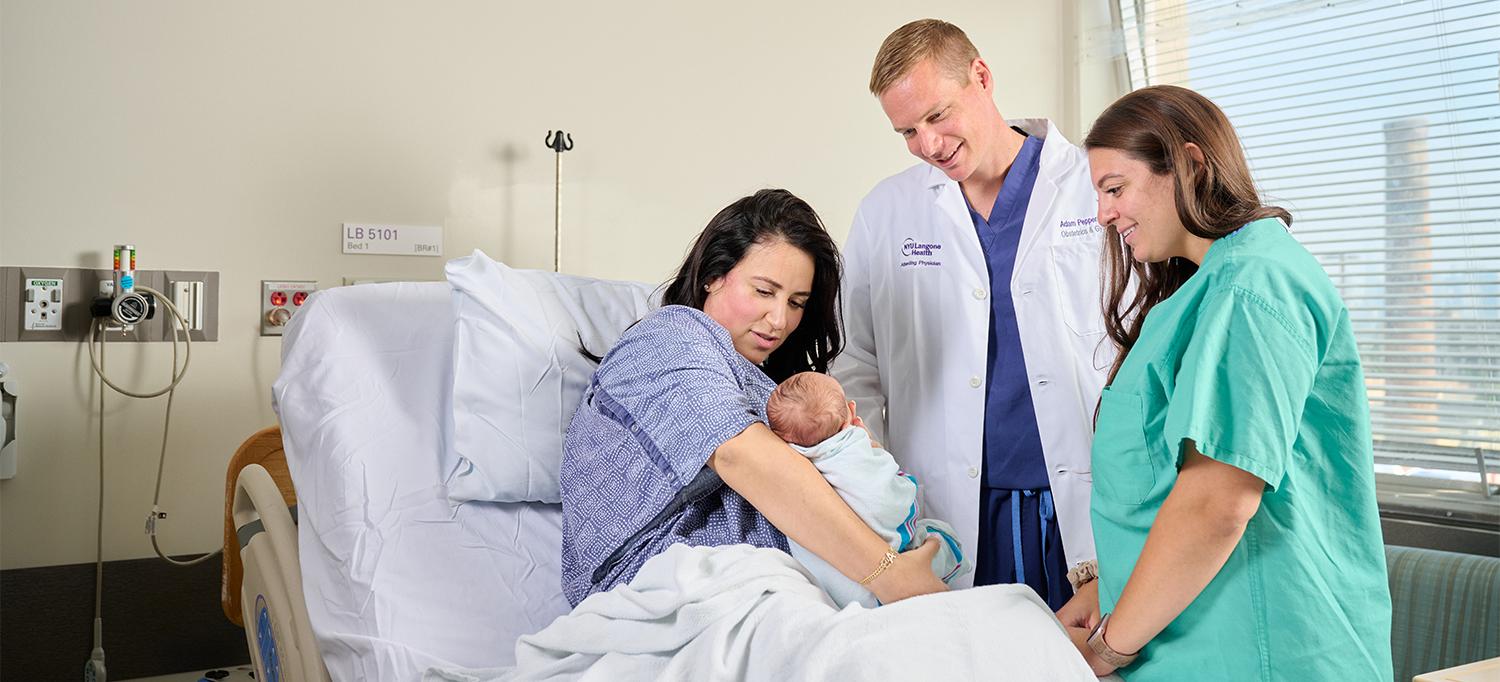
NYU Langone Health is the first academic medical center in New York State to achieve advanced certification in perinatal care, a designation earned by all three of our birthing hospitals.
Photo: Joe Carrotta
In January 2023, when the nation’s leading hospital accreditation board, The Joint Commission, introduced an advanced certification in perinatal care to help organizations improve outcomes, NYU Langone’s obstetrics teams moved swiftly.
NYU Langone’s three birthing hospitals, NYU Langone Hospital—Brooklyn, NYU Langone Hospital—Long Island, and Tisch Hospital, have met the commission’s existing standards for quality and safety outcomes in obstetric care since 2021. The new advanced certification required the implementation of new protocols that prioritize the social and emotional wellbeing of pregnant patients before, during, and after delivery. By May of this year, NYU Langone had risen to the challenge, becoming the first academic medical center in New York State to achieve the advanced certification.
“What’s special is not just that we were first in the state, but that we achieved the certification across all three campuses,” says Maxine Simon, chief regulatory officer for NYU Langone.
Whereas the standard certification focuses solely on core measures such as rates of cesarean delivery and episiotomy, a surgical technique to prevent tissue rupture during childbirth, the advanced measures emphasize trauma-informed care, social assessments, and mental health.
“We understood that the focus was now beyond just the physicality of a patient coming in for labor and delivery,” says Eileen Magri, PhD, RN, senior director of nursing at NYU Langone Hospital—Long Island, who coordinated the certification application and process. “It was more about the wholeness of the person and of the birthing experience.”
Because trauma-informed care centers on patient communication, the teams partnered with NYU Langone’s Medical Center Information Technology department, known as MCIT, to add a series of new questions within the institution’s electronic health record system. For instance, patients are now asked “Is there anything you’d like to share with us that might impact your labor and delivery?” as a way to screen for past trauma.
For social assessments, patients are asked about their home life to determine whether they need additional help once leaving the hospital and are assessed for issues such as substance use and access to food and housing. For mental health challenges, patients are queried to assess their risk for postpartum depression and other mood disorders and the need for assistance connecting with local mental health services.
“Our timeline for meeting the new Joint Commission standards was really tight,” says Dr. Magri. “We had to figure out how to do these things quickly. But thanks to our tri-campus approach to aligning our practices and policies and the amazing job of our MCIT partners, we had the resources to get the job done.”

